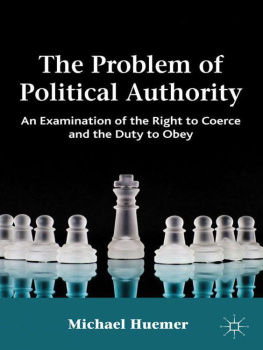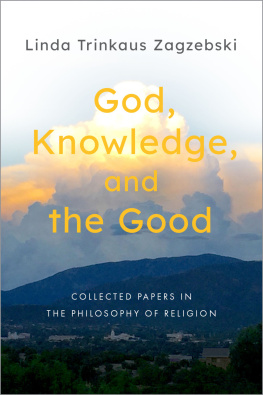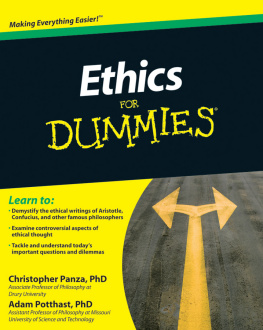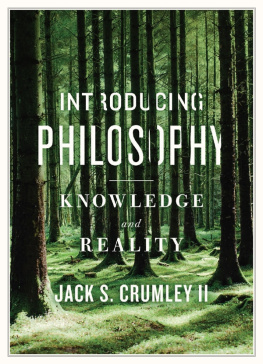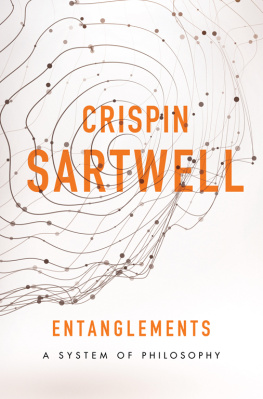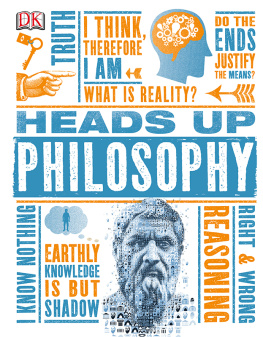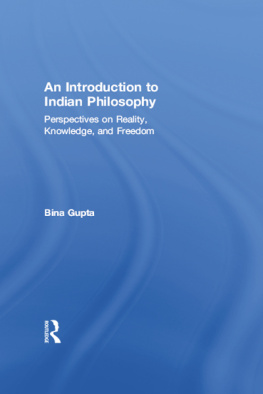Knowledge, Reality, and Value
A Mostly Common Sense Guide to Philosophy
Michael Huemer
Copyright 2021 Michael Huemer
Text copyright 2021 Michael Huemer, all rights reserved. Cover image: Iskra at Tampa Bay, 2020 Michael Huemer, CC BY 4.0.
Contents
Preface
Why Read This Book?
This is an introduction for students who would like a basic grasp of a wide variety of issues in the field of philosophy. There are many textbooks you could look to for this purpose, but this one is the best. Here is why:
i . The writing. It is written in a clear, simple style. It should be easier to read and wont put you to sleep as fast as other textbooks. (On the other hand, if you want to fall asleep quickly, I suggest checking out an academic journal.)
ii . The topics. I cover a broad array of big and interesting issues in philosophy, like free will, the existence of God, how we know about the world around us, and the existence of objective values. I dont spend too much time on the boring ones (which we wont even mention here).
iii . The price. I just checked the prices of some traditional textbooks. I wont mention them by name so as not to embarrass their publishers, but I see prices in the range of $50, $80 one is even listed at $140. (You know why they do this, right? They know that students dont choose textbooks. Professors choose them, and students just have to buy them. The profs may not even know the prices, since they get their copies for free. This is also why most textbooks are written to please professors, not to please students. But I digress.) If Id gone with a traditional textbook publisher, Id have no control over the price, and it would probably wind up at $80 or something ridiculous like that.
I also wouldnt be able to write it like this. Theyd say the style was too informal and flippant and demand that I write more professionally and lethargically.
iv . The author . Im smart, I know a lot, and Im not confused which means you can probably learn a lot from this book. You probably wont learn too many falsehoods, and you probably wont run into too many passages that dont make sense.
About the Author
I can hear you saying: Oh sure, you would say that. Okay, maybe you shouldnt believe me yet, because you just met me, and maybe Im biased. Maybe you want to know if Im enough of an expert to write this textbook, especially since it hasnt been certified by a big textbook publisher. So here is who I am, sticking just to objective facts:
I got my BA in philosophy from UC Berkeley. I got my PhD in philosophy from Rutgers University, which at the time was ranked #3 in philosophy in the United States (theyre now ranked #2). I am a tenured full professor at the University of Colorado at Boulder, where I have taught philosophy for over 20 years. As of this writing, I have published more than 70 academic articles in a variety of journals, including most of the top-ranked philosophy journals. (In philosophy, by the way, the good journals reject 9095% of submissions.) My publications span a wide range of topics in different branches of philosophy, including many of the issues I introduce you to in the following pages.
I have written seven books before this one and edited an eighth, all published with traditional, academic publishers (which is why theyre so expensive). Here are my earlier books, in case you want to look up any of them:
Skepticism and the Veil of Perception
Epistemology: Contemporary Readings (edited volume)
Ethical Intuitionism
The Problem of Political Authority
Approaching Infinity
Paradox Lost
Dialogues on Ethical Vegetarianism
Justice Before the Law
My Approach in Writing This
Thats enough about me. Now here are some comments about my approach in writing this:
I have selected a few very prominent issues in each of the biggest areas of philosophy issues that are commonly addressed in philosophy courses and that philosophy students like to know about, like the existence of God, free will, etc.
I give a basic presentation of each issue, including what I consider the most important and interesting arguments that can be explained reasonably briefly. (In each case, there are of course many more complicated and nuanced views and arguments to be found in the literature.) By the way, when you read these arguments, dont just memorize them and move on (as students sometimes do). Spend some time thinking about whether you agree with them or not.
All of these are issues that people disagree about. In each case, my presentation aims to be (and I think is in fact) fair , but not neutral . That is:
I give each view a fair hearing, presenting its case as strongly as I can (given space constraints), in terms that I think are faithful to its proponents intellectual motivations. I do not select evidence, distort peoples words, or use any other tricks to try to skew the assessment of any of the philosophical theories. (Those sorts of tricks are unsuited to a philosopher.)
I do not , however, promise a neutral presentation one that just reports other peoples ideas without evaluation (which I consider terribly boring). I am going to tell you what I think, and I am going to defend it with logical arguments that try to show you why that view is right.
If you dont like that, this isnt the book for you. Go get another book, like Stuart Rachels anthology or something.
Why Study Philosophy?
If you havent studied philosophy, you probably dont know why you should. There are two main reasons to do it.
First, philosophical questions are inherently fascinating. At least, many of them are. I mentioned some of them above. If those didnt sound interesting to you, then philosophy probably isnt for you.
Second, studying philosophy helps you think better. Right now, you probably dont know what I mean by that, and I cant adequately explain it, but I will in adequately explain it presently. I cant prove it to you either, since appreciating the point requires, well, studying philosophy for a few years. So Ill just tell you my assessment based on my experience. I saw it happen to myself, and I have seen it happen to students over the years. I came to the subject, at the beginning of college, in a state of confusion, but I did not then comprehend how confused I was. I had some sort of thoughts about great philosophical questions, but these thoughts very often, as I now believe, simply made no sense. It was not that they were mistaken, say, because I was missing some important piece of information. It was that I did not even really know what I was thinking. I used words but did not really know what I meant by them. I confused importantly different concepts with each other. I applied concepts to things that they logically cannot apply to. I might seemingly endorse a philosophical thesis at one moment, and in the next endorse a related but incompatible thesis, without noticing any problem.
I was not, I stress, an unusually confused student; I am sure I was much less confused than the average college student. It just happens that virtually everyone starts out extremely confused . That is our natural state. It takes effort and practice to learn to think clearly. Not even to get the right answers, mind you, just to think clearly . To know precisely what your ideas are , and not be constantly conflating them with completely different ideas.
By the way, it is not just studying in general or being educated in general that is important. The point Im making is specifically about philosophy , and about a particular style of philosophy at that (what we in the biz call analytic philosophy). When I talk to academics from other fields, I often find them confused. That is a very common experience among philosophers. To be clear, academics in other fields, obviously, know their subject much better than people outside their field know that subject. That is, they know the facts that have been discovered, and the methods used to discover them, which outsiders, including philosophers, do not. But theyre still confused when they think about big questions, including questions about the larger implications of the discoveries in their own fields. Whereas, when philosophers think about other fields, we tend to merely be ignorant, not confused .
Next page

